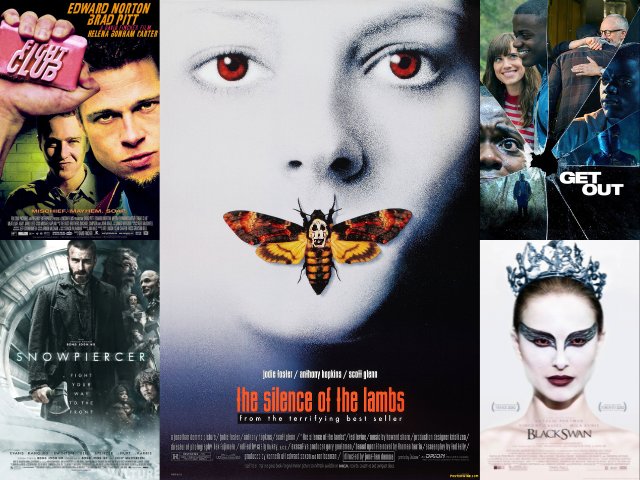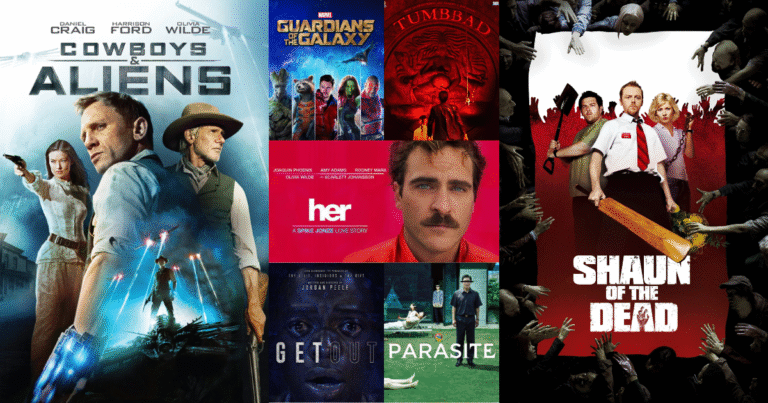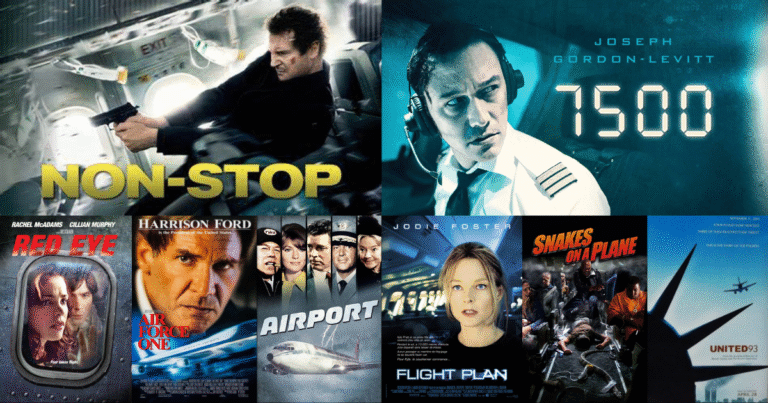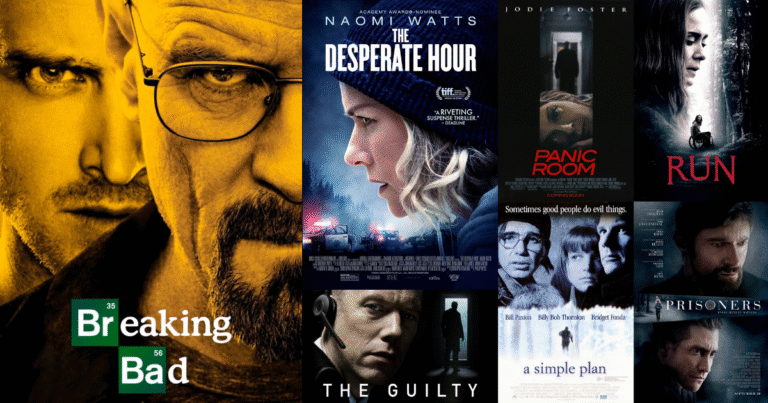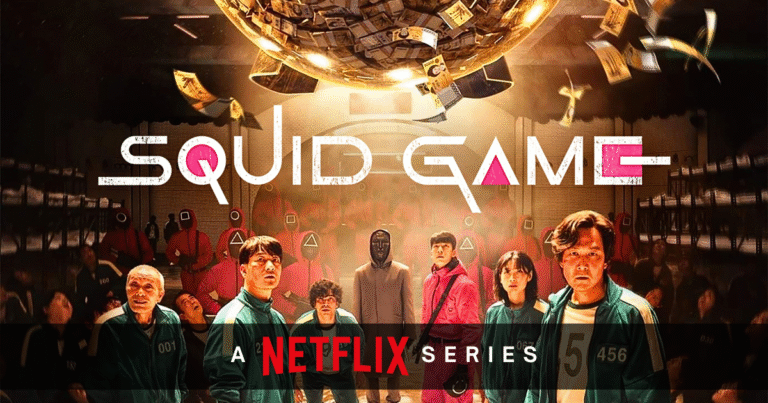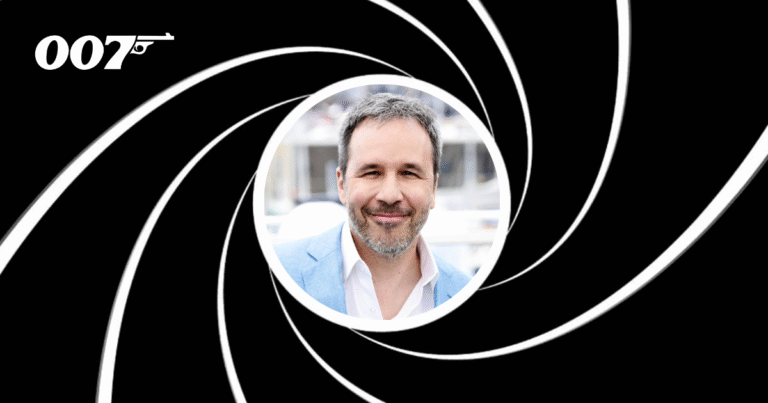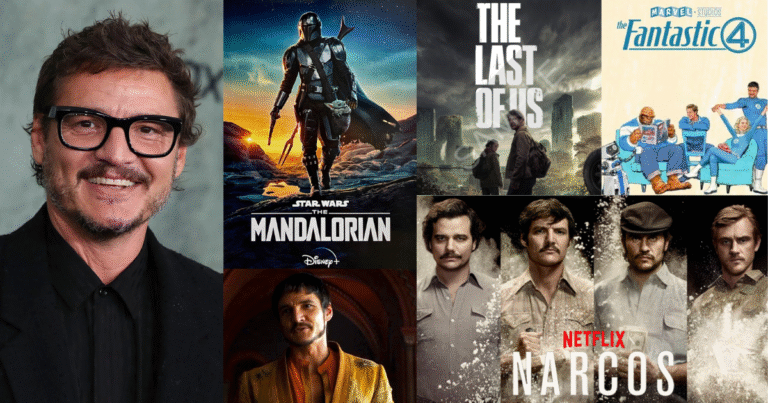Thriller films are one of the most popular movie genres around the world. Whether it’s a tense spy drama, a chilling crime mystery, or a psychological mind game, thrillers keep us on the edge of our seats. But why do people enjoy this feeling of fear, suspense, and tension? What is it about thrillers that keeps us coming back for more?
In this blog, let’s explore the psychology behind thriller films and why certain genres appeal to audiences in such a strong way.
What Makes a Thriller?
Thrillers are films that build suspense and create a strong emotional reaction. They often include danger, tension, and unexpected twists. Some famous examples include Se7en, Gone Girl, The Silence of the Lambs, Prisoners, and The Girl with the Dragon Tattoo. These movies usually feature characters in difficult situations, where every decision could be a matter of life or death.
Thrillers can overlap with other genres too. A crime thriller, a psychological thriller, or a political thriller—all follow the same formula of building tension and keeping the viewer guessing.
The Human Brain Loves Suspense
One reason thrillers appeal to us is because our brains are wired for suspense. When we’re watching a tense scene, our body reacts. Our heart rate goes up. We may sweat a little. Our muscles tighten. This physical reaction is part of our natural fight-or-flight response.
But in a movie theatre, or even at home, we know we’re safe. So we get the thrill without the real danger. It’s like riding a rollercoaster. You get the adrenaline without the actual risk.
That mix of safety and danger is what makes thrillers so exciting. It’s a safe way to experience fear and excitement at the same time.
Predictability vs. Surprise
Another reason thrillers are satisfying is that they often follow a familiar pattern but still manage to surprise us. We expect twists, but we don’t always know when or how they’ll happen. This creates a game between the movie and the audience. We try to figure out what’s going on before the characters do.
That feeling of “I knew it!” or “I didn’t see that coming!” gives us a rush. It keeps our minds active, guessing, and engaged.
Thrillers also offer a kind of mental puzzle. They make us think deeply and pay attention to every small detail. That sense of challenge is enjoyable for many viewers.
Escaping into a Dangerous World
Thrillers also allow us to step into a world very different from our own. We may never be a secret agent or a detective chasing a serial killer. But for two hours, we can experience that world. We can live through the drama without facing any real harm.
This is known as escapism. In psychology, escapism means getting away from daily stress by entering a different reality. Thriller films help us forget our normal routines and take part in high-stakes adventures, even if only for a short time.
This escape can be refreshing. It pulls us out of the ordinary and into the extraordinary.
The Appeal of Morality and Justice
Many thriller films deal with right and wrong, good and evil. Often, the hero is fighting for justice, truth, or survival. Even when the main character is flawed, we root for them to win or escape.
Audiences enjoy stories where wrongdoers are caught and punished. These themes connect to our deep need for fairness and order in society. When a thriller ends with a satisfying resolution, it gives viewers a sense of closure and emotional relief.
On the flip side, when thrillers end on a dark or open note, they leave us thinking. These endings may not be comforting, but they can be powerful and memorable. They make us question what we might do in the same situation.
Exploring the Dark Side of the Mind
Psychological thrillers, in particular, are interesting because they explore human behavior, mental health, and inner conflict. Movies like Black Swan, Fight Club, or Shutter Island dive into the minds of their characters.
These films attract viewers who are curious about human psychology. We like to explore the unknown, and the human mind is full of mystery. Why do people lie, cheat, or kill? What drives someone to the edge? Thrillers offer a way to explore these questions without facing the real-world consequences.
They also help us understand ourselves a bit better. When we connect with flawed characters or complex villains, it makes us think about our own choices and values.
Gender and Genre Preferences
Different people enjoy thrillers for different reasons. Research has shown that men are often drawn to action thrillers with fast-paced plots, while women may prefer psychological thrillers with deeper emotional stories. Of course, these are not strict rules, everyone’s taste is personal.
But generally, people who like solving problems, dealing with uncertainty, or feeling intense emotions tend to enjoy thrillers more. It’s not always about the violence or the crime, it’s about the emotional journey.
Thrillers in a Changing World
As audiences grow smarter, thrillers have also evolved. Newer thrillers often include social issues, deeper character arcs, and realistic plots. Films like Get Out mix horror, race, and psychological themes. Parasite uses thriller elements to explore class divide. These movies reflect real-world problems while keeping the suspense alive.
Streaming platforms like Netflix and Amazon have also made thrillers more popular. Now, people can enjoy thrillers in series form, watching several episodes back-to-back. Shows like You, Mindhunter, and Ozark have found huge fan bases this way.
Why We Keep Coming Back
In the end, the psychology behind thriller films is about emotion. We want to feel something strong. Fear, excitement, curiosity, even confusion. Thrillers tap into all of that. They give us a full-body experience, both mentally and physically.
They make us think and feel. They let us face danger without risk. And most of all, they remind us that even in the darkest situations, the human spirit can shine.
Whether you’re into dark crime stories, slow-burning mysteries, or intense psychological rides, thrillers offer something for everyone.
So next time you press play on a thriller, remember, there’s more going on than just a story. It’s your brain, heart, and body, all reacting together. And that’s what makes the genre so unforgettable.




